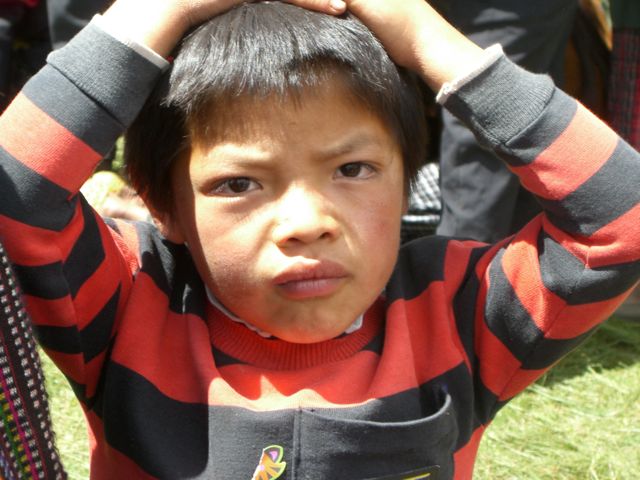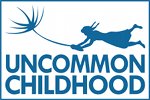COED Guatemala-A Ray Of Hope
February 26, 2011 in blog, Guatemala, North America, Travelogue
There are so many days in life when I fight the temptation to throw up my hands and give up on the world. The problems are so big. The evil often seems so much stronger than the good. We’re mired in political difficulties so deeply that the simple solutions aren’t even considered. How can I, one small Mama with so little time, money or talent possibly make a difference? It seems like the world is beyond help and the only thing that I can really do that matters at all is raise my own little herd to be part of the solution instead of part of the problem.
And then, there are days, when I’m witness to something so simple, so profound, so life changing, so unreservedly generous and irrefutably good that it makes me want to try again. Thursday was one such day.
We almost missed it. I overslept (I’m not smart enough to set my ipod alarm, evidently) and woke to my mother shaking my toe, “Jenn, it’s 6:45 a.m…. what time do you want to get the kids up?” My mother is so gracious. She KNEW that we had to be on the boat by seven and yet she woke me kindly with a question. With a whispered expletive I exploded from my sleeping bag and started dragging children, bodily from their beds. Thank goodness we’ve no toddlers in this house or we’d NEVER have made it. Most of the kids even ate something and I worked on restoring my travel zen on the long, calm ride across the lake while I knit Elisha’s sock. It was noon before I realized my shirt was on backwards!
I’d really considered just chicken bussing it up to Los Encuentros and then catching one of those pick up trucks with the iron bar contraptions welded over the back end, in which everyone stands and hangs on for dear life. The directions we had indicated that Pixabaj (Peesh-ah-bah) wasn’t far from Los Encuentros and I’m notoriously cheap. But, out of deference to my gentle mother, I’d arranged for a driver and a private van. Can I just say, THAT was a good call.
We’d never have found Pixabaj, much less the San Buenaventura school without Marvin. It is NOT particularly close to Los Encuentros, and the road gets progressively worse, from paved to gravel, to dirt, to sand, partially washed out from the mudslides as it weaves it’s way through perilous highlands, picturesquely terraced with vegetables on all sides. Pixabaj is situated squarely on the fringe of heaven.
Marvin stopped for times to ask if we were on the right track; some of the folks we asked spoke only K’iche and not Spanish, so he did his best to interpret. Each time he received the same answer, up there, higher, further, keep going; and so we did.
Ultimately, we recognized the school by the row of faces peering down over the edge of a mud cliff, watching the road into town. There was nowhere to park but on the road itself, which had no berm and dropped away down the hillside steeply for several hundred feet.
We were the first to arrive and so we ascended the narrow dirt footpath slowly, trying not to peer as inquisitively at the children as they were at us. We were there to join a tour group from an organization called COED Guatemala and see the inauguration of their “culture of literacy” program at the San Buenaventura school.
The highland people are tiny. The men rarely reach my shoulders and the women are often no bigger than Ezra, so you can imagine the elfish proportions of the Mayan children who lined the path with big smiles and even bigger eyes.
We were met by the Minister of Education for the Department (like a state or province) of Solola, and Anna, one of the COED staff who’d arrived before us. The school yard was strewn with pine needles, a sign of welcome and honor for the Mayan people and every single desk and chair in the entire school was arranged in the courtyard; children in, on and around the desks on one side, American visitors on the other side with a long row of Mamas and babies wrapped in the rainbow huipiles of the higlands lining the sides.
The children had made a sign welcoming us and had covered coffee cans with colored paper that they’d filled with calla lillies and fresh flowers. They were nervously quiet as they watched and waited for the rest of the guests to arrive.
We listen to a podcast called “Stuff You Should Know,” produced by “HowStuffWorks.com,” when we’ve got extra time in the car. Sometime last year we heard an episode about this organization, COED Guatemala, non-profit based in Cincinnati, Ohio and their work in the poorest schools in the country. Loving Guatemala as we do, we were instantly interested and by the end of the hour long show we were captivated.
The problem of education in Guatemala is mammoth. The average person has only a third grade education and literacy, as we would think of it, is almost non-existent among the indigenous population, who make up 80% of the Guatemalan people. Our night guard, uncle of our gardener, father of six, pillar of the community of San Pablo, protector and provider to his family, home owner and business man, cannot read a single word of Spanish, or Ka’chiquel for that matter.
Part of the problem is accessibility of schools, part is the value placed (or not) on education, part is the necessity of every able bodied family member to work, and work, hard to keep the family fed. But another part of the problem is that, even where there are schools, there are often no books. So kids may learn letter sounds and to “read” from the blackboard or with the teacher, but they never make the connection or the leap to true literacy because there’s nothing to read outside of the classroom and few real books even IN the classroom. This is where COED comes in.
They’ve devised a simple solution that is changing lives for very little investment. They supply textbooks to rural schools. The children are then required to pay a very, very small rental fee for the books. This rent is saved and within five years the school can afford to reinvest in another round of books. It’s simple, it’s sustainable, it’s not creating dependency or a “hand out” mentality and it’s empowering communities to educate their children where previously, it had simply been impossible. They train the teachers too, so the books are put to their best possible use. They have a similar program that sets up computer labs in schools as well.
The program was lovely. It consisted, largely, of a long line of people thanking the COED staff and those on the tour profusely for choosing their community and investing in their children. A tiny girl in the second grade read a letter of thanks she’d written that brought tears to my eyes. Then, the children danced on their pine needle stage and demonstrated local folklore for us and I realized, as I videoed their performance that the laughter of proud Mamas at the performance of their children is universal and we smiled, knowingly, at one another.

2nd Grade class... note the ONE shelf holding ALL the supplies for the whole class for the whole year.
We spent long enough visiting with the children that Grammy got a sunburn. We talked with the principal, the teachers and the children… at least the older ones, who spoke Spanish. I translated for a fellow from Edmonton, Alberta, Canada, who sat on the pine needles surrounded by children and showed them pictures of snow and Christmas in Canada. My children passed out stickers and played soccer with the kids using the new ball that COED had provided to help their sports program as well.
My Mom loved it. She’s been involved in social justice issues for years through her church and various organizations in Canada. She’s excited to help Hannah in her attempt to raise money for COED (the reason for our visit, Hannah e-mailed them in July to start the ball rolling to set this meeting up.) She talked a long while with girls from the fourth grade and asked where all the boys were. They looked at her shyly and didn’t answer. There were no boys, to speak of, past the second grade, because they were working. All of them. There is no time for the luxury of school for boys who are needed in the fields.
We left with full hearts, gratefulness for the gift of our own opportunities to be educated and educate our own, which we take for granted every single day and with a burden for these bright-eyed children who live in mud huts with bare feet and tortillas and beans to eat and not much else. For so very little we have the opportunity to provide so very much for them.
How can we not? How can we, who have meat everyday, some of us three times a day, and a closet full of shoes, TVs in every room, ipods in every pocket, shelves and shelves of books we don’t read, mattresses for every family member, electricity, multiple vehicles, CD collections that run the length of a wall, extra money for internet access, games, Dunkin’ Donut drive through and Snickers bars allow children to go without books in their classrooms? Are we really that selfish? I hope not.
In another post, very soon, Miss Hannah is going to present you with an opportunity to help. A way for you to put the tools for life-giving literacy into the hands of the children whose eyes you see here. These are real kids, living, breathing, laughing, and crying, right now, just like mine, just like yours. And YOU have the power to make a difference… or not… but the choice, either way, is real, and it matters.






 RSS - Posts
RSS - Posts


























Fantastic, Jenn. And what a great thing for your children to experience. We can’t wait to hear from Ms. Hannah on how we can help.
Well, I am humbled. I have nothing else to say.
Amazing! I hope I can teach my children love and service in the same way you are.
Thanks for the inspiration!
[…] wouldn’t have had the opportunity to stand in the school yard at Pixabaj and watch the money Hannah raised for CoEd Guatemala’s literacy program in […]